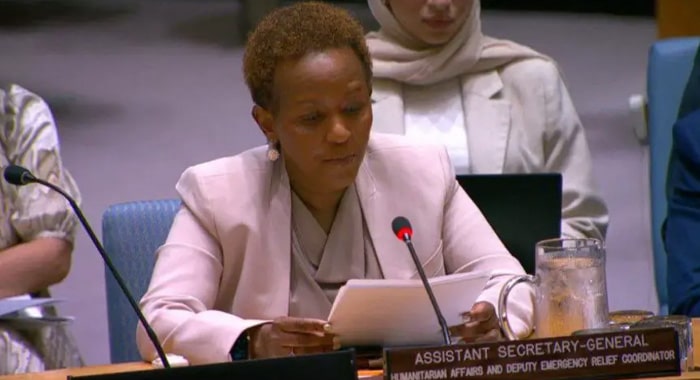The United Nations has sounded the alarm over Afghanistan’s deepening humanitarian crisis, with millions of people facing hunger, severe malnutrition, collapsing education systems, and an impending water catastrophe in the capital, Kabul. The warnings came during a United Nations Security Council briefing on Monday, where senior UN and U.S. officials underscored the devastating impact of decades-long conflict, climate shocks, and systemic restrictions particularly those targeting women and girls.
Joyce Msuya, the UN Assistant Secretary-General for Humanitarian Affairs and Deputy Emergency Relief Coordinator, painted a grim picture of life for millions of Afghans. She highlighted that more than one in five Afghans now face hunger, and over three million people are severely malnourished. Of particular concern is the plight of Afghan children nearly 3.7 million are unable to attend school, with 2.2 million girls above the age of 11 banned from education under Taliban policies.
“Decades of war, entrenched poverty, environmental degradation, and the systematic exclusion of women and girls have all combined to bring Afghanistan to the brink,” Msuya told the Council. She pointed to Afghanistan’s maternal mortality rate—more than 2.5 times the global average—as a clear indicator of the country’s deteriorating health conditions.
Msuya warned that Kabul may soon become the first capital in modern history to face a crippling water crisis, with groundwater levels in the city having dropped by 30 meters. Nearly half of the city’s wells have dried up, leaving millions at risk of losing access to clean water.
Amid these hardships, Msuya underscored the essential role of Afghan women in delivering aid, despite the Taliban’s continued restrictions. “Afghan women remain at the frontlines of humanitarian relief, reaching the most marginalized, even as they face growing threats and limitations,” she said.
To sustain essential services, the Afghanistan Humanitarian Fund has allocated $2.4 million to local organizations, including many that are often sidelined. Msuya said this financial boost is critical to sustaining operations in hard-to-reach communities.
U.S. Ambassador to the UN, Dorothy Shea, echoed the urgency of the crisis. “Afghanistan’s people continue to suffer from extreme poverty, unemployment, and a collapse of basic services, all compounded by natural disasters and Taliban-imposed restrictions,” she said. Shea emphasized the need for the international community to act decisively in the face of mounting humanitarian needs.
As the situation worsens, UN officials reiterated their call for sustained international engagement and funding to avert further catastrophe, warning that the future of Afghanistan—especially its women and girls—hangs in the balance.





